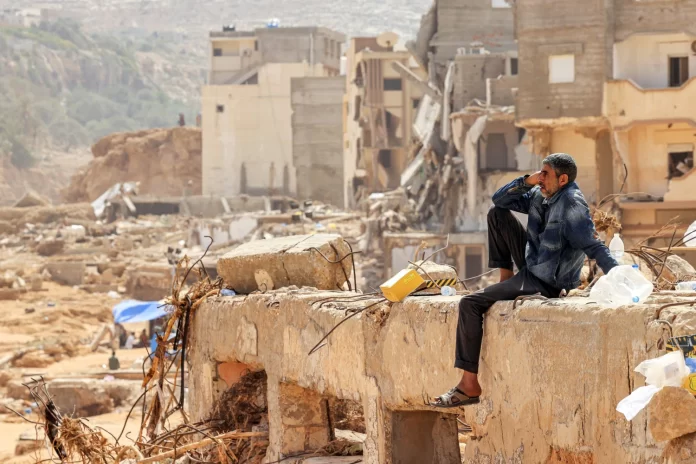Facebook Twitter (X) Instagram Somali Magazine - People's Magazine
In a significant legal and political development, several officials in Libya have been jailed in connection with deadly Libyan floods attributed to the mismanagement of water resources. The floods, which resulted in numerous fatalities and widespread destruction, have highlighted critical issues in the country’s infrastructure and governance.
Background of the Libyan Floods Incident
The catastrophic floods occurred in the city of Derna, where heavy rainfall overwhelmed the local drainage systems, leading to severe flooding. Initial investigations revealed that the tragedy was exacerbated by poor maintenance and inadequate management of the city’s water infrastructure. This failure to properly manage water resources and maintain infrastructure has now led to legal repercussions for those deemed responsible.

Legal and Government Response to the Libyan Floods Incident
The Libyan authorities launched an investigation into the disaster, quickly identifying lapses in oversight and maintenance as key factors contributing to the severity of the floods. As a result, several officials, including those responsible for water management and city planning, have been arrested and charged with negligence and dereliction of duty.
Impact of the Libyan Floods Incident on the Community
The floods have had a devastating impact on the local community, displacing thousands of residents and causing significant economic losses. The jailing of these officials is seen as a move towards accountability, aiming to restore public confidence and ensure better management of critical infrastructure in the future.
Looking Forward
This incident underscores the need for substantial improvements in Libya’s infrastructure management and disaster preparedness. The government has pledged to take comprehensive measures to upgrade the water management systems and prevent such tragedies from occurring again.
Conclusion
The jailing of Libyan officials over the deadly floods marks a pivotal moment in addressing the systemic issues within the country’s infrastructure management. It is hoped that this accountability will lead to more robust and effective governance, ultimately safeguarding the lives and well-being of Libyan citizens.

